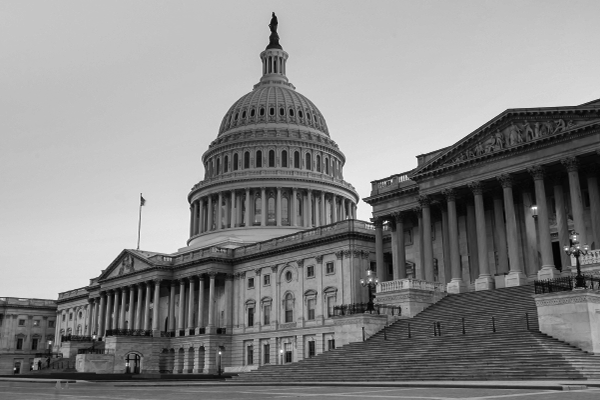ICYMI: Half Measures Make Ethanol Mandate Worse

This week, AEA President Tom Pyle penned an op-ed in Roll Call explaining why a corn-only repeal of the broken Renewable Fuel Standard may actually hurt American families more than the status quo. Pyle lambasts lawmakers’ attempts to re-work an unworkable law, and shows why full repeal is the only way to fix the RFS. Below is the text of the op-ed:
In an effort to show Congress “can work again,” some lawmakers are attempting to make an unworkable law even worse. Recently, several proposals have been floated to “amend” the Renewable Fuel Standard, which requires refiners to blend rising volumes of renewable fuel into gasoline.
Proponents of such bills, including Sens. Patrick J. Toomey, R-Pa., and Dianne Feinstein, D-Calif., would do away with the corn-ethanol mandate but retain the mandate for “advanced” biofuels — products that don’t exist in appreciable, economically viable quantities, if at all.
Lawmakers should reject these half measures. This month, Sen. Bill Cassidy, R-La., introduced legislation to do away with the RFS entirely. This approach addresses the reality that by keeping intact the costly “advanced” mandate, corn-only repeal may actually inflict more harm on American families than the status quo. The only real “reform” to the broken RFS is full repeal.
Congress enacted the RFS in 2005 and expanded it in 2007. The law requires refiners to blend 36 billion gallons of biofuel into the nation’s transportation fuel supply by 2022 — a figure that all agree is unachievable and most would argue unwarranted.
This program was doomed to failure. Under the delusion that “if you mandate an industry, it will come,” Congress and President George W. Bush trusted the Environmental Protection Agency to accurately project and mandate biofuel production nationwide.
Congress’ first mistake was passing the RFS. The error was compounded when lawmakers trusted EPA to implement it in a reasonable fashion. Case in point: in 2010, despite mandating millions of gallons of cellulosic biofuel (fuel derived from inedible plant matter), exactly zero gallons of cellulosic were produced. This “minor inconvenience” didn’t deter EPA. The following year, EPA raised the mandate even higher, but still cellulosic producers mustered up no fuel.
In fact, the EPA has so thoroughly mismanaged the RFS that in 2013 the D.C. Circuit Court ruled the agency’s actions amounted to illegal promotion of cellulosic biofuels. Not to mention that the EPA had, until last month, failed to even propose standards for 2014, in violation of federal law.
Instead of accepting reality, the EPA created a new reality. Faced with the fact that cellulosic biofuels aren’t cost-effective enough to be produced in large quantities, EPA simply changed the definition of “cellulosic” to include things such as compressed natural gas and electricity. Since those cannot physically be blended into gasoline, refiners are forced to purchase credits and pass along those costs to motorists.
Unfortunately, the EPA’s incompetence continues. In May, the agency released its long-delayed mandates for 2014 and beyond, calling on refiners to blend 206 million gallons of cellulosic in 2016—even though cellulosic producers have failed to demonstrate a capacity to produce even 1/206th of that amount (until the EPA changed the definition, of course).
It’s long past time Congress learned its lesson. Removing the implied corn portion but keeping the “advanced” mandate does nothing to stop the EPA’s accounting gimmicks. Instead it transforms the RFS into California’s expensive low-carbon fuel standard, which one study showed could raise the state’s fuel prices by more than $2.50 per gallon.
Partial repeal also, ironically, is worse for corn farmers than full repeal. Corn ethanol is a commercially viable product and a reliable blendstock — in the proper quantity. It doesn’t need the mandate to survive.
Under Toomey-Feinstein, however, corn ethanol loses the war for mandated market share. The mandate for “advanced” biofuel remains untouched, which means it continues to rise and shift the market for ethanol away from corn and toward more costly sources.
The big issue with corn ethanol isn’t commercial viability, but the ethanol lobby’s continued push for higher ethanol blends even though we’ve reached the maximum percent of ethanol most cars can safely handle—the blend wall.
If the last decade has taught us anything, it’s that Congress should never have passed the RFS. Yet proposals short of full repeal only make the mandate worse. The desire to “do something” does not require doing the wrong thing. Congress should fully repeal the RFS and give Americans, not the EPA, the power to choose the fuels they deserve.
Thomas Pyle is president of the American Energy Alliance.
Click here to view the original op-ed.


